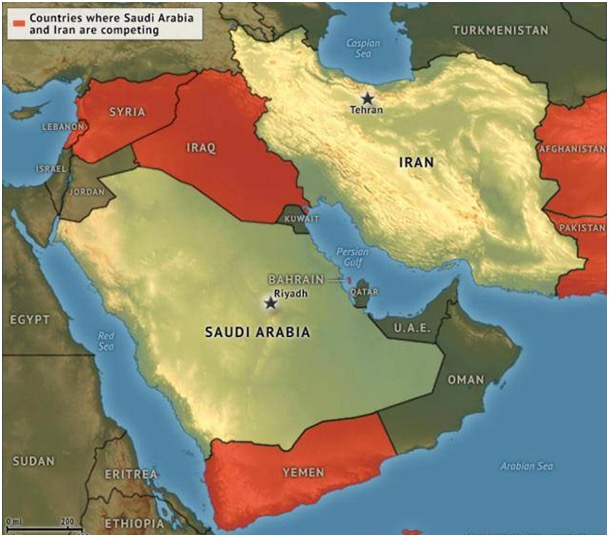Khalid Taimur Akram: China’s Steady Role in Global Supply Chain
the last few years, the world has gone through some major shocks. It has seen pandemic, wars, inflation, and rising political tensions. In this situation, many countries were worried about the future of global trade and whether supply chains can survive sudden disruptions. However, in this difficult period, one country that has played a very important and stabilizing role is China. Even when the global systems were shaken, China made sure that the goods keep moving, factories running, and markets supplied. Today, as the world is recovering from those shocks, China has emerged as one of the strongest and most reliable anchors of global supply chains.
Today, China is shifting from being the “world’s factory” to becoming a “global supply chain hub”. The China Federation of Logistics & Purchasing (CFLP) report on China supply chain development from 2024 to 2025 notes that, in recent years, China has made significant strides in modern logistics and advanced manufacturing. A total of 80 national-level advanced manufacturing clusters are now scattered across China. This shows that China is very serious about becoming a global supply chain hub.
China’s role is not an accident or a short-term achievement. It is the result of decades of planning, investment, and cooperation with partners around the world. To support smooth trade and avoid disruptions and volatility of global markets, China built roads, ports, railway networks, industrial zones, and research centers. It also trained millions of skilled workers, earned the trust of investors, and created a business-friendly environment where foreign companies could set up factories, research labs, or logistics centers. With the passage of time, China positioned itself as a place where companies could depend on fast production, high quality, and competitive prices. This stability has benefited people and industries in every continent.
One reason due to which China stands out is its production capacity. China is one of the few countries that can make almost every part of a product, from tiny screws to complex electronics. This is often called “complete industrial chains.” For example, if a company wants to build a smartphone, an electric car, or a solar panel, it can find nearly all the materials, suppliers, and technologies inside China. This makes production faster, cheaper, and more predictable. Other countries are also trying to build similar systems, but this takes time and requires large investment. China already has these systems ready and functioning on a large scale.
China’s Strength in Logistics and Green Technology
Modern supply chains depend not only on producing items but also on moving them efficiently. Without logistics centers, supply chains cannot work efficiently. China’s logistics strength plays a pivotal role in why China is considered the most reliable anchors of global supply chains. China has some of the world’s busiest ports, fastest high-speed trains, and well-connected airports. During the COVID-19 pandemic, while many countries suffered from shortages of medical supplies, China quickly organized special flights and shipping routes to deliver masks, ventilators, and medicines. This is how it helped many nations deal with the crisis. Even today, China is trying to improve its logistics networks with advanced technologies such as smart ports and automated warehouses.
Critics often argue that China’s immense work on massive infrastructure is a cause of increased environmental degradation and carbon emissions but that’s not the case because China has also become a leader in green and sustainable supply chains. As the world tries to reduce carbon emissions, China is producing clean technologies on a huge scale. Solar panels, electric vehicle batteries, wind turbines, and energy-efficient appliances often come from Chinese factories. This does not only help China grow; it helps the entire world access affordable green technology. China providing its green technology to the world is a proof that China wants to work for the betterment of entire world unlike many great powers. Many developing countries depend on China for clean energy solutions because they are reliable and cost-effective. This is how China is supporting global climate goals while also strengthening economic cooperation.
The world’s growing dependence on China is seen by many as a red light, but this view is too narrow. In reality, China’s strong supply chain presence has reduced global costs, increased product availability, and helped people improve their living standards. For example, because China produces electronics at scale, consumers around the world can buy affordable phones, laptops, and home appliances. Because China manufactures medical equipment efficiently, hospitals in many countries can access high-quality devices without paying extremely high prices. China’s involvement has made goods more affordable and accessible for millions. In short, everything we buy today has “Made in China” label on it. This label does not indicate China’s hegemony over production and supply chains, it shows that China’s products are affordable and easily accessible without comprising quality.
Of course, China also benefits from being a global manufacturing center, but this is natural in any cooperative economic system. Trade works best when both sides gain. China buys huge amounts of raw materials from Asia, Africa, Latin America, and Europe. It imports high-end machinery, agricultural products, natural resources, and even luxury goods. This two-way trade supports jobs in many countries. This is why, it is said that “when China grows, its trading partners grow too.”
China’s Future Role: Innovation and Global Cooperation
Recently, some governments have used the term “de-risking” to encourage reducing dependence on China. Although every country has the right to protect its economy, it is equally important to recognize that completely separating supply chains may create more problems than it solves. Fragmentation can lead to higher prices, slower production, boycotts, and greater uncertainty. Due to this fragmentation, everyone will suffer, particularly the developing ad underdeveloped countries. Most companies around the world still prefer to work with China because they know the system is efficient and reliable. China has shown again and again that it values stability and cooperation. Instead of cutting ties, a better approach is to strengthen communication and coordination so that supply chains remain resilient.
What makes China especially important today is its ability to adapt. We should not limit the value of China simply to a place for low-cost manufacturing. It is rapidly becoming a center of innovation, automation, and high-tech production. Chinese companies are leading in areas like robotics, artificial intelligence, advanced materials, electric vehicles, and telecommunications. These new technologies enable China to keep improving the quality of its products and the speed of its logistics. Since the global demand is shifting towards high-tech goods, China is adjusting its supply chain strengths to match these trends.
Another notable development is China’s role in helping other countries build local production capacity. Through cooperation programs, training initiatives, and overseas industrial parks, China is sharing technology and skills with developing nations. This helps countries such as Indonesia, Ethiopia, Egypt, and Brazil create their own manufacturing bases and participate more actively in global supply chains. Contrary to some negative stereotypes, China is not trying to “control” global supply chains; it is working with partners to build a more inclusive and interconnected world economy.
In conclusion, China’s role in global supply chains is one of the most important economic realities of our time. China brings stability, efficiency, scale, and innovation to the international market. Global markets cannot run without China. All thanks to China that it kept trade flowing during difficult periods and continues to support global growth through advanced manufacturing and logistics. Instead of viewing China as a risk, we should praise China for being a pillar of global economic stability. Cooperation with China offers the world an opportunity for shared progress, affordable products, and sustainable development. As the global economy becomes more complex, China’s steady and reliable role in supply chains will remain a valuable asset for everyone.
By Mr. Khalid Taimur Akram, Executive Director, Pakistan Research Center for a Community with Shared Future (PRCCSF), Islamabad
Share this content:









Yorum gönder